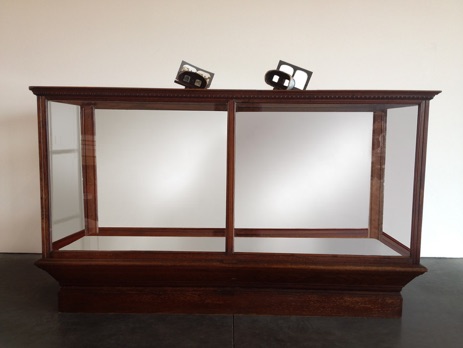Looking towards the future through the lens of America’s social and cultural past from the conceptual context of Samuel L. Parrish’s curio cabinet. In which the Colonial history of the Town of Southampton (Note 1), and those across America, including the role of the railroad, is reflected and encapsulated in the story of these ancestral lands. Including the Philadelphia area, first settled by the Lenni-Lenape, also in the Algonquin Family as are Shinnecock, before taken by Quaker followers of William Penn (late 17th century). The city where Parrish, a Quaker, (1849), and Sandrow (1951) were born.
From the site of open air studio Shinnecock Hills located within the Shinnecock Indian Contact period Village Fort Critical Environment Area: placeholder untitled (Hope) considers if this critical point in history presents an unique opportunity for new voices to emerge - free from the confines of colonialist minded gatekeepers.
What’s in a name?
William Shakespeare, quote from Romeo and Juliet 1597
Hope proposes a reconsideration of our relationship to nature and the natural world, to one another; in our community and country. Posing the question (beginning November 3 2020) to viewers what are your hopes? An ongoing query through these challenging times beginning with "Stay-in-Place”.
To consider if the interconnection and response - to the coronavirus 19 pandemic (WHO March 11 2020) in conjunction with climate change and remarkable protests for gender and racial justice …. at the conclusion of the Federal Election for President and Congress, and State Legislatures - will lead somewhere new, that we don’t know what it looks like or a return to the past, hindering change.
Note 1: founded 1640 (please note: on Algonquian ancestral lands), “The Town of Southampton “is proud to be New York State's first English colony. The town's records extend back to the founding of the settlement in 1640, and include agreements and land exchanges, inventories and vital records, and numerous documents that portray the expansion and evolution of the early colony.”

